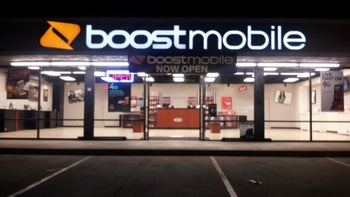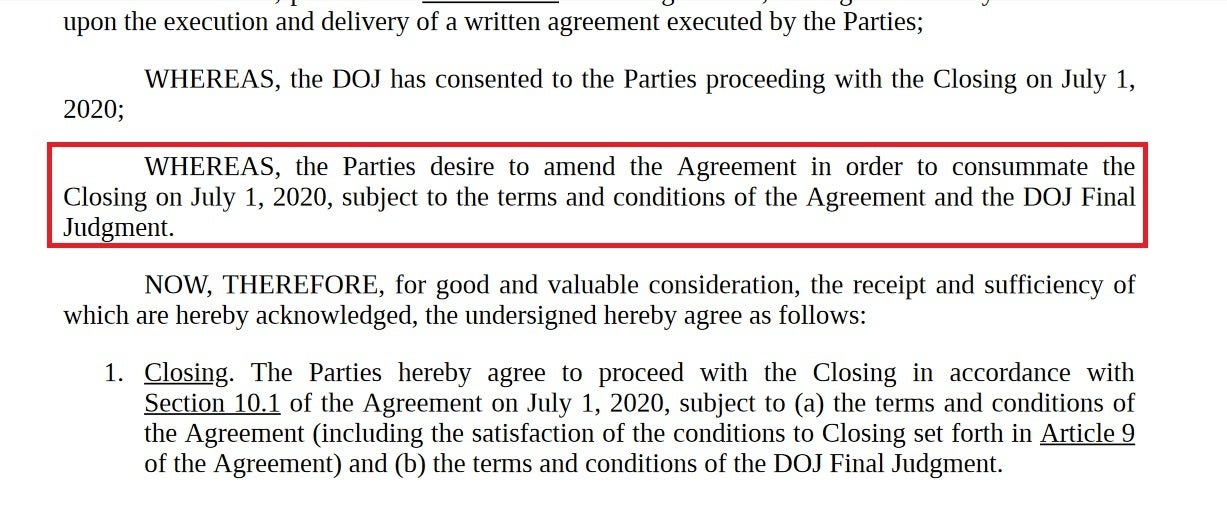Dish Network's SEC filing reveals the date when it will close on the purchase of Boost Mobile

The Department of Justice (DOJ) was concerned that if it allowed T-Mobile to merge with Sprint, the number of major U.S. carriers would be reduced by 25% to three from four. The regulatory agency feared that this would lead the remaining three wireless providers to raise prices. To prevent this from happening, a deal was reached that would turn Dish Network into the "fourth nationwide facilities-based network competitor" allowing it to replace Sprint.
For $5 billion, Dish co-founder and Chairman Charles Ergen is getting the wireless business he craves so badly. Dish will receive all of Sprint's prepaid businesses which includes 9.3 million customers located in all 50 states and Puerto Rico, 400 employees, and 7,500 retail stores. This part of the business costs $1.4 billion. For the remaining $3.6 billion, Dish will get 14MHz of Sprint's 800MHz spectrum. Dish is expected to sign a 7-year MVNO agreement with T-Mobile that will allow it to start selling wireless service under the Dish name while it builds out a standalone 5G network.
Dish Network will close on its purchase of Boost Wireless and other prepaid assets on July 1st
Over the last few days, there were rumors about Dish backing out of the deal. On April 1st, T-Mobile bought Sprint and Ergen, notoriously difficult to deal with, possibly thought that he had T-Mobile and the DOJ just where he wanted them. But those were just rumors. And with the original Asset Purchase Agreement (APA) set to expire on July 1st, an SEC filing made by Dish dated Wednesday, June 17, states that Dish plans on closing the deal with T-Mobile on July 1st. The deal will be done under the original terms agreed to.

Dish Network will close on its acquisition of Boost Mobile and other assets on July 1st
The merger for T-Mobile was always about it taking control of Sprint's mid-band 2.5GHz spectrum. Such spectrum is rare in the U.S. and T-Mobile is looking to "bake a cake" with its 5G network. The bottom of the cake is made up of the 600MHz low band spectrum that T-Mobile paid $7.99 billion for in 2017. The middle tier of the cake uses Sprint's mid-band airwaves with high-speed mmWave spectrum on top.
Dish must now find a deep-pocketed partner willing to help it build a standalone 5G network. One possible partner is rumored to be Apple. The late Steve Jobs had considered the idea of offering the iPhone with cellular service out of the box. Current CEO Tim Cook is reportedly interested in a plan that would send data to iPhone units by satellite. Dish could help Apple with that endeavor while ending up with part ownership of a 5G network; other possible partners include Google and Amazon. The standalone 5G network means that it uses strictly 5G technology for data and voice. Non-standalone 5G networks keep some LTE technology and use it for voice while data runs at faster 5G data speeds.
According to one estimate, it will cost $10 billion for Dish to build a standalone 5G network. And there is no time to waste because as part of its original deal with the DOJ, the company agreed to cover 70% of the country with a 5G signal by June 14, 2023. If Dish fails to meet that goal, it will be forced to make a "voluntary contribution" of $2.3 billion to the U.S. Treasury. T-Mobile also made some commitments to the FCC including a promise that 97% of the country (85% in rural areas) will be covered with low-band 5G signals within three-years after the merger closed. It also promised to deliver mid-band 5G to 75% of the country over that same time period. After six years, those percentages rise to 99% nationwide for low-band spectrum and 88% for mid-band spectrum.
Now that Dish Chairman Ergen will finally get his wireless business on July 1st, it will be interesting to see whether he can get turn it into a major carrier as envisioned by the DOJ.













Things that are NOT allowed: